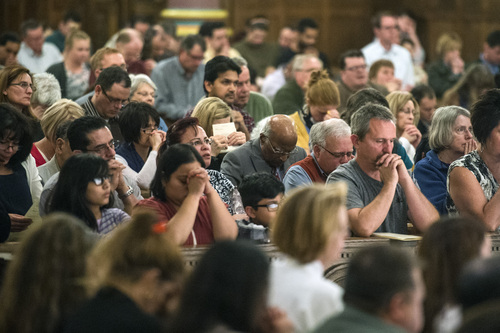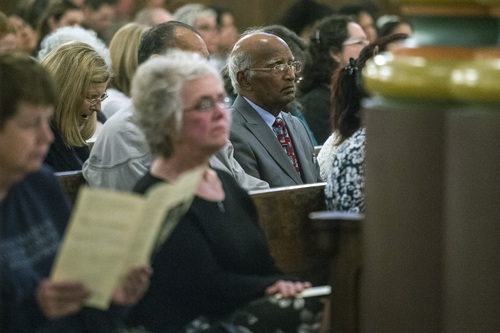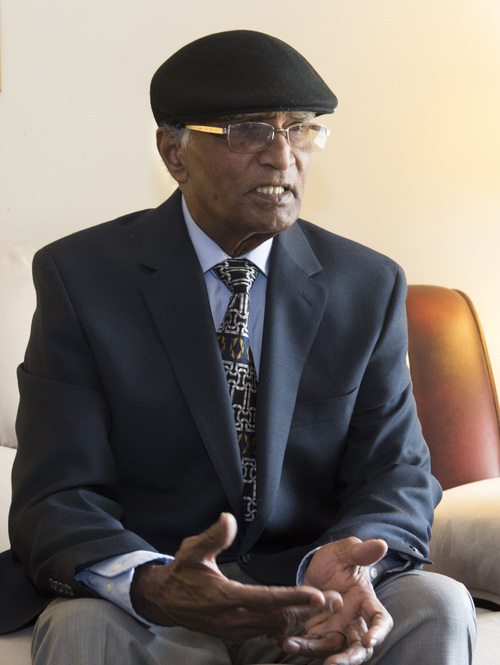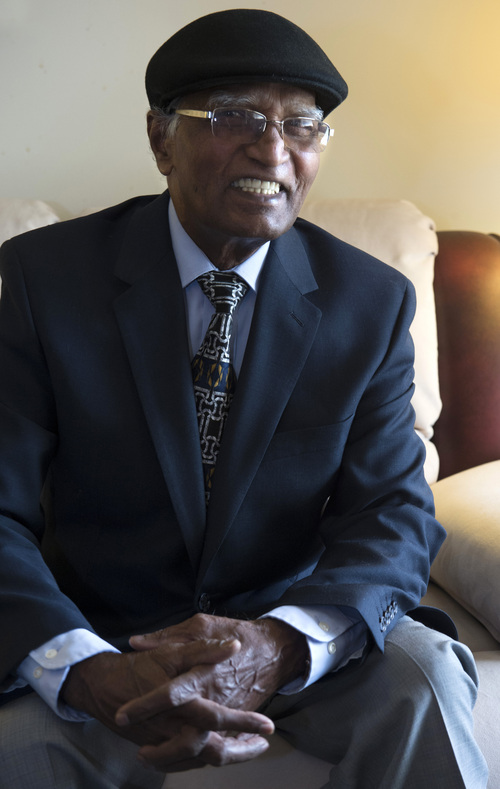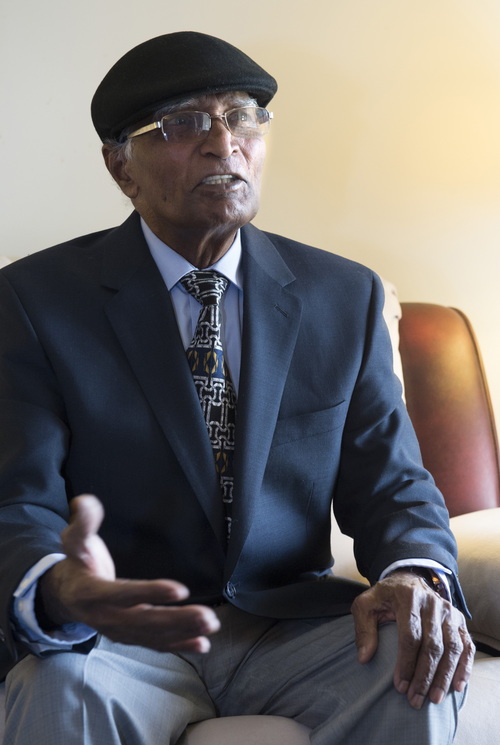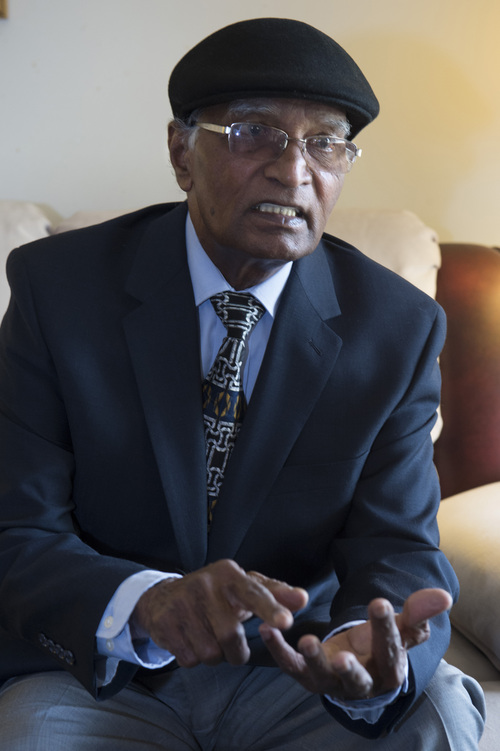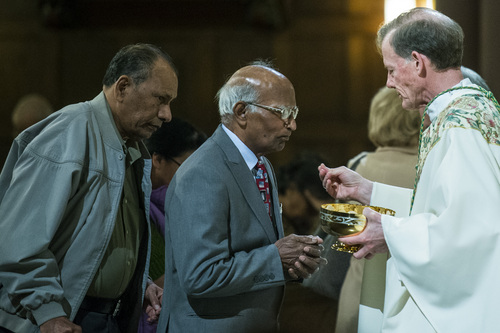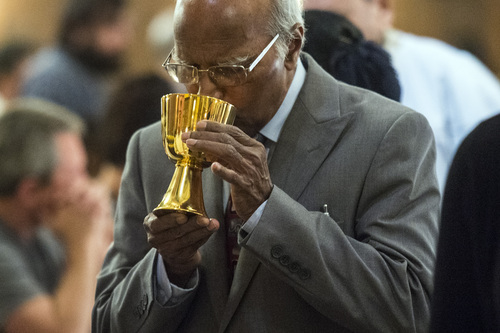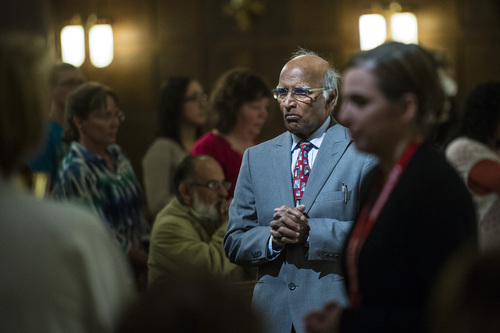This is an archived article that was published on sltrib.com in 2014, and information in the article may be outdated. It is provided only for personal research purposes and may not be reprinted.
Holladay • As Saman Lall joins other Utah Christians celebrating Jesus Christ's resurrection on this spring-dappled Sunday, you could say the Pakistani educator has been reborn himself.
This is, after all, Lall's first Easter in a country where freedom of religion is a bedrock principle, where all varieties of believers worship freely.
Lall could repeat the ancient prayers and ceremonies in a new land: Foot-washing, taking communion, carrying the cross, tracing the "stations of the cross," experiencing darkness in the sanctuary, followed by lit candles, a flood of light, and then, hallelujah.
All without fear.
Back home in Muslim-dominated Pakistan, religious anxiety is a constant.
In a country of 180 million people, fewer than 2 percent are Christians. Anyone can be severely punished for insulting the Prophet Muhammad, the Quran or the Islamic faith.
In the past year alone, several Christian villages have been burned or attacked when Muslims perceived a verbal assault on the prophet or his holy book. Christians have been jailed for violations of the country's notorious "blasphemy" law.
As persecution of Christians continued to escalate, Lall sought a haven with extended family in Utah — and has been amazed at the freedoms and friendliness he experiences here.
"I feel I am in the midst of a loving heart," the 76-year-old said this week, while sitting in his niece's Holladay home. "Nothing bad will happen to me here."
Utah's 2,000-plus Pakistanis — about 300 Christians and the rest Muslims — agree.
"We don't have any life-threatening problems or religious riots here as they face in Pakistan. The U.S. government will take care of us," says the Rev. Silas Samuel, a Pakistani pastor at Westvale Presbyterian Church in West Valley City. "But standing for faith in Pakistan is often a matter of life and death. Not all Muslims attack Christians, but there is a small group who are very violent and forceful and they can influence mob action."
Salman Masud, a Salt Lake City physician and Pakistani Muslim married to a Christian, says the conflicts are not always religious but often political and sectarian. Even some types of Muslims, including Shias, feel the sting of persecution, he says, while other followers of Islam fight extremism in their ranks.
"The whole country is steeped in intolerance," says Masud, a former member of the Pakistan Association of Utah's governing board. "Since 1947, every other country has improved its literacy rate, while Pakistan is going down. Democracy is difficult without an educated population. Tribalism, feudalism and extremism will fill the void."
Pakistan's founders, who laid out a vision for the country, chose white on the flag to represent the minorities, while green signified Muslims, he says. "Pakistan was never this intolerant."
Lall grew up in Stuntzabad, amid a cluster of relatively safe Christian villages in the Punjab region named after British missionaries who founded the towns. His family worshipped at a Catholic church, but he eventually taught in a Methodist school and led a Methodist choir.
As a teacher in a high school that included Muslim and Christian students, Lall studied Islam, he says, memorizing many verses of the Quran and reaching out to all students.
He barely managed to avoid death in 1997, when a village he was visiting with his daughter was destroyed. He offered to talk with the Muslims who did the burning , telling them, "The Quran doesn't say to attack or kill."
Some years ago, the government tried to nationalize all Christian schools, changing their names and requirements. It also tried to shift the workweek to include Sunday (the Christian sabbath) and make Friday (the holy day for Muslims) part of the weekend.
Lall counts many Muslims as his friends and is saddened by the rising conflicts between the two groups. "Now," he says, "there is no security for Christians."
Apphia Dooley, Lall's niece, says sometimes Christian kids can be as "hotheaded as others."
Dooley came to Utah in 1975, when her then-husband landed a job as a nurse at the former Holy Cross Hospital (now Salt Lake Regional Medical Center). He died shortly thereafter, and she married John Dooley, who died eight years ago.
When Apphia Dooley obtained U.S. citizenship in 1983, she applied for her parents to come. They arrived in 1984, followed by a brother in 1986, another in 1990, a sister in 1993, and yet another brother in 2001. Slowly, aunts, uncles and cousins fled their country for the safety and security of America.
Lall, who came in October, will be joined in a few months by his wife and, eventually, by his eldest son — also a teacher — and possibly some grandchildren.
During this Holy Week, the family's shared Catholic faith helps them connect across the continents. Each ritual reminds believers of Christ's humility, suffering, death and, ultimately, so they believe, rising from the grave.
Practicing his lifelong faith in his adopted country feels good, Lall says. "Everyone here is so loving. We all believe in the same God."
It is, for him, a real sense of newness and peace.
pstack@sltrib.com Twitter: @religiongal


